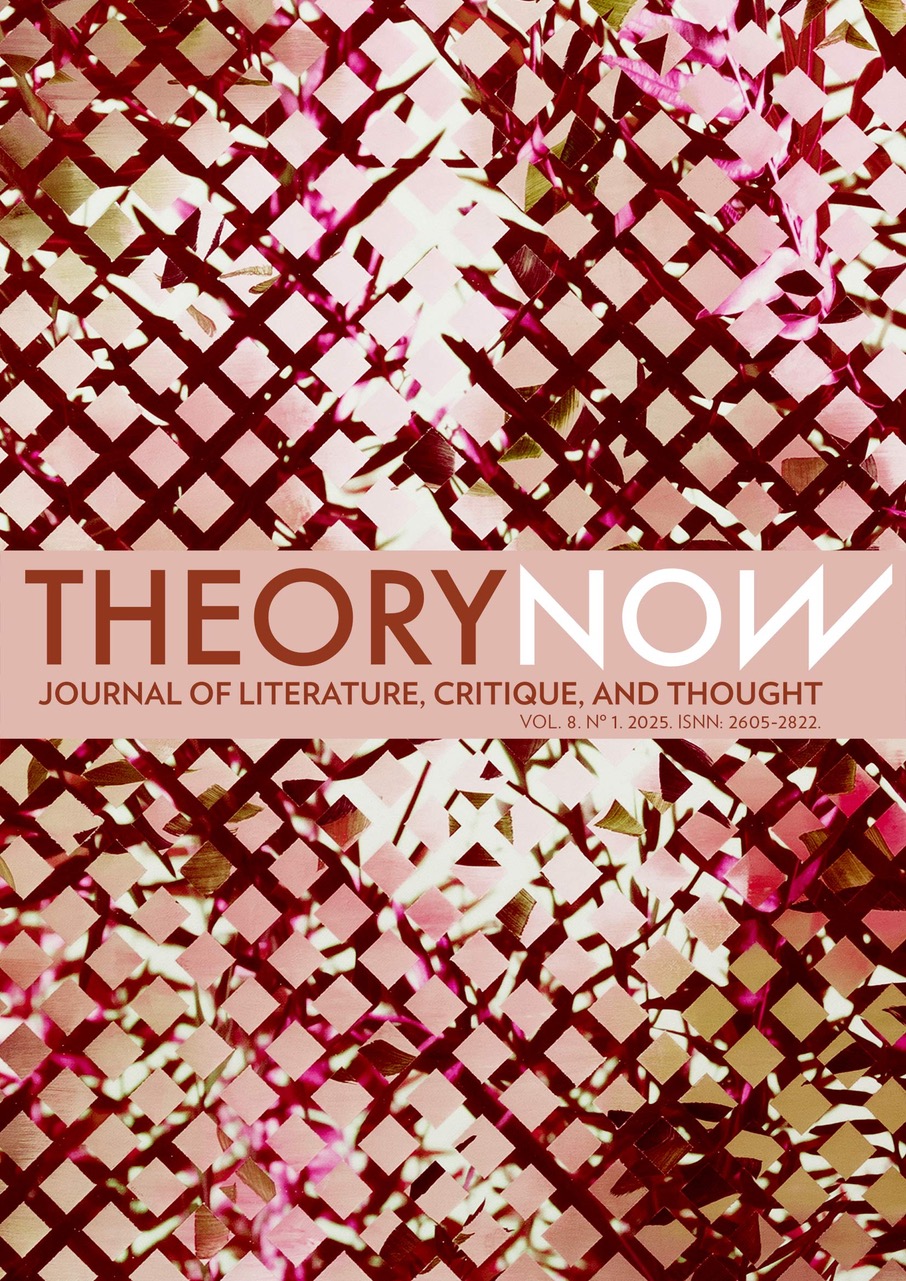Sustainability, Minimalism, and Slow Microtextualities
DOI:
https://doi.org/10.30827/tn.v8i1.29344Keywords:
Sustainability, Literature, Ecocritics, Degrowth, Minimalism, Microtextuality, Social networks, Rebound effect, Deep timeAbstract
The conclusions of the Club of Rome report on the limits to growth exposed the connection between increased production and consumption, on the one hand, and ecological degradation, on the other. Since then, several proposals have been put forward supporting degrowth and the Slow Movement. In this article, I will reflect first on the concept of “sustainability” applied to the field of online creation in relation to the so-called digital sobriety, which emerges in opposition to an inflationary and multi-screen cultural model, characterized by its large consumption of data and energy as well as by its rebound effects. Secondly, a parallel will be established between “digital minimalism” and microtextuality, since both phenomena appeal to a series of values coinciding with those used to describe minimalist poetics. Finally, an Anthropocene reading of slowness will be carried out as a starting point to imagining and creating with a greater awareness of materiality.
Downloads
References
Anders, Günther. La obsolescencia del hombre: Sobre el alma en la época de la segunda revolución industrial, vol. 1. Valencia, Pre-Textos, 2011.
Arias Maldonado, Manuel. “El giro antropocénico. Sociedad y medio ambiente en la era global”. Política y Sociedad, vol. 53, no. 3, 2016, pp. 795-814.
Asafu-Adjaye, John, et al. “An Ecomodernist Manifesto”, 2015. http://www.ecomodernism.org/manifesto-english 14 Feb 2024.
Bellver Soroa, José. “Lo pequeño no es tan hermoso: los costes ambientales del consumismo de aparatos electrónicos”. Boletín Ecos, no. 25, 2014. https://www.fuhem.es/media/cdv/file/biblioteca/Boletin_ECOS/25/lo%20peque%C3%B1o%20no%20es%20tan%20hermoso_j_bellver_.pdf
Deleuze, Gilles. Conversaciones 1972-1990. Valencia, Pre-textos, 1995.
“Ecologie et révolution. Débat avec Sicco Mansholt, Edmond Maire, Edgar Morin, Edward Goldsmith, Philippe Saint-Marc et Michel Bosquet”. Le nouvel observateur, 18 de junio de 1972.
Farrier, David. Anthropocene Poetics: Deep Time, Sacrifice Zones, and Extinction. Minneapolis, University of Minnesota Press, 2019.
Ferraris, Maurizio. Documanidad: Filosofía del mundo nuevo. Madrid, Alianza, 2023.
Gámez Cersosimo, Pablo. Depredadores digitales: Una historia de la huella de carbono de la industria digital. Madrid, Editorial Círculo Rojo, 2021.
Gatica Cote, Paulo. “De tuiteratura: una aproximación (y algunas reflexiones desde la tuiteratura mexicana)”. ILCEA, no. 41, 2020. https://journals.openedition.org/ilcea/11357#entries
Gatica Cote, Paulo y Javier Helgueta Manso. “Diálogo entre ‘desgenerados’: intersecciones de la brevedad en español (siglo XXI)”. Lejana: Revista Crítica de Narrativa Breve, no. 15, 2022, pp. 1-14.
Hickel, Jason. Menos es más: Cómo el decrecimiento salvará al mundo. Madrid, Capitán Swing, 2023.
Kallis, Giorgios, Federico Demaria y Giacomo d’Alisa. “Decrecimiento”. Decrecimiento: Vocabulario para una nueva era, Giacomo d’Alisa, Federico Demaria y Giorgios Kallis (eds.), Barcelona, Icaria, 2015, pp. 35-58.
Kamiya, George. “Factcheck: What is the carbon footprint of streaming video on Netflix?”, Carbon Brief, 25 Feb. 2020. https://www.carbonbrief.org/factcheck-what-is-the-carbon-footprint-of-streaming-video-on-netflix/ 14 Feb 2024.
Linz, Manfred. “Sobre suficiencia y vida buena”. Vivir (bien) con menos: sobre suficiencia y sostenibilidad, Manfred Linz, Jorge Riechmann y Joaquín Sempere (eds.), Barcelona, Icaria, 2007, pp. 5-17.
Lovink, Geert. Atascados en la plataforma: Reclamando Internet. Manresa, Bellaterra Edicions, 2023.
Marrero Henríquez, José Manuel. “Filología verde y poética de la respiración para un mundo contaminado”. Actio Nova: Revista de Teoría de la Literatura y Literatura Comparada, no. 5, 2021, pp. 417-435.
____. “Crítica literaria y sostenibilidad”. Literatura y sostenibilidad en la era del Antropoceno, José Manuel Marrero (ed.), Las Palmas de Gran Canaria, Fundación Mapfre, 2011, pp. 25-57.
Newport, Cal. Minimalismo digital: En defensa de la atención en un mundo ruidoso. Barcelona, Paidós, 2021.
Odell, Jenny. Cómo no hacer nada: Resistirse a la economía de la atención. Barcelona, Ariel, 2021.
Parikka, Jussi. Una geología de los medios. Buenos Aires, Caja Negra Editora, 2021.
Pelluchon, Corine. Ecología como nueva Ilustración. Barcelona, Herder, 2022.
Richardson, Katherine et al. “Earth beyond six of nine Planetary Boundaries”. Science Advances, vol. 9, no. 37, 2023. https://www.science.org/doi/10.1126/sciadv.adh2458
Riechmann, Jorge. ¿Derrotó el smartphone al movimiento ecologista? Para una crítica del mesianismo tecnológico. Madrid, Los libros de la Catarata, 2016.
Rockström, Johan et al. “Planetary boundaries: exploring the safe operating space for humanity”. Ecology and Society, vol. 14, no. 2, 2009. http://www.ecologyandsociety.org/vol14/iss2/art32/
Sempere, Joaquim. “¿Es posible la austeridad voluntaria en un mundo que se hunde en la insostenibilidad ecológica?”. Vivir (bien) con menos: sobre suficiencia y sostenibilidad, Manfred Linz, Jorge Riechmann y Joaquín Sempere (eds.), Barcelona, Icaria, 2007, pp. 19-32.
Sörlin, Sverker. “Environmental Turn in the Human Sciences”, The Institute Letter, verano 2014. https://www.ias.edu/ideas/2014/sorlin-environment 14 Feb 2024.
The Shift Project. Deploying Digital Sobriety, 2020. https://theshiftproject.org/wp-content/uploads/2024/02/Deploying-digital-sobriety_TSP_2020.pdf 14 Feb 2024.
Vindel, Jaime. Cultura fósil: Arte, cultura y política entre la revolución industrial y el calentamiento global. Madrid, Akal, 2023.
Zavala, Lauro (ed.) Teorías del cuento I: Teorías de los cuentistas. México D. F., Universidad Nacional Autónoma de México, 1993.
____. Teorías del cuento III: Poéticas de la brevedad. México, D. F., Universidad Nacional Autónoma de México, 1996.
Published
How to Cite
Issue
Section
License
Theory Now. Journal of Literature, Critique, and Thought is an immediate open-access publication which is available at no cost for readers and authors alike. Authors are not charged any kind of fee for the editorial processing of their articles. Reading, downloading, copying, distributing, printing, searching, linking or reusing all published articles for non-commercial uses is allowed on the condition of citing the author, the journal and the editing body. All intellectual material published in this journal is protected under a Creative Commons Attribution-NonCommercial 3.0 Spain license.
Dissemination of the articles in social (Facebook, Twitter, Linkedin, etc.) and scientific networks (ResearchGate, Academia.edu, etc.), public repositories at universities and other institutions, blogs, personal or institutional websites, Google Scholar, ORCID, ResearchID, ScopusID, etc. is strongly encouraged. In all cases, the intellectual property of the articles and any possible monetary profits derived from them belong exclusively to the authors.













